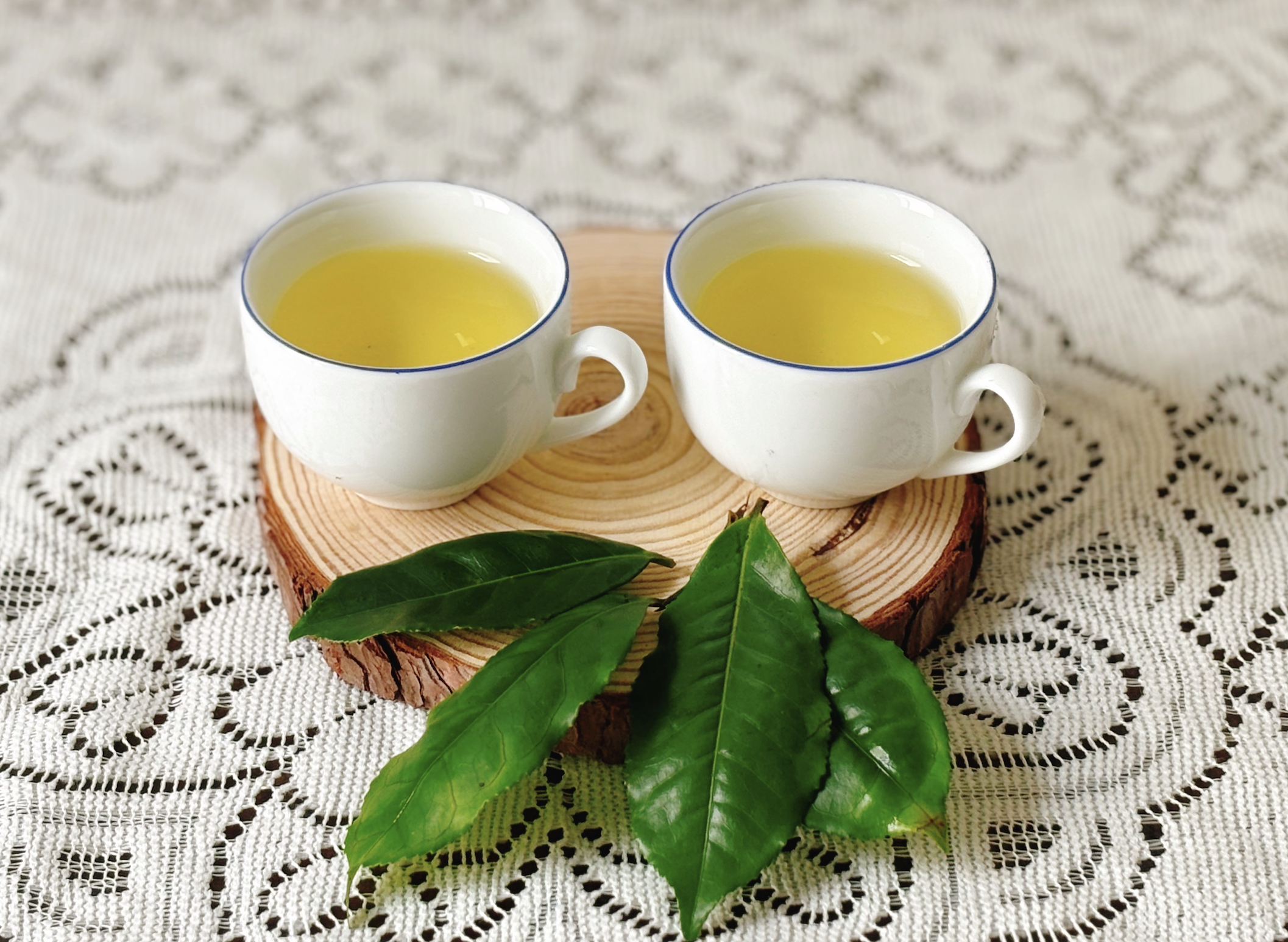 |
Green tea is rich in catechin antioxidants that may protect against several types of cancer, including liver cancer. Brewing your own tea and drinking it hot, rather than bottled green tea, helps your body absorb more catechins. Photo: Anh Chi, AI, Bao Bao |
Green tea is rich in catechin antioxidants that may protect against several types of cancer, including liver cancer. Brewing your own tea and drinking it hot, rather than bottled green tea, helps your body absorb more catechins. Photo: Anh Chi, AI, Bao Bao
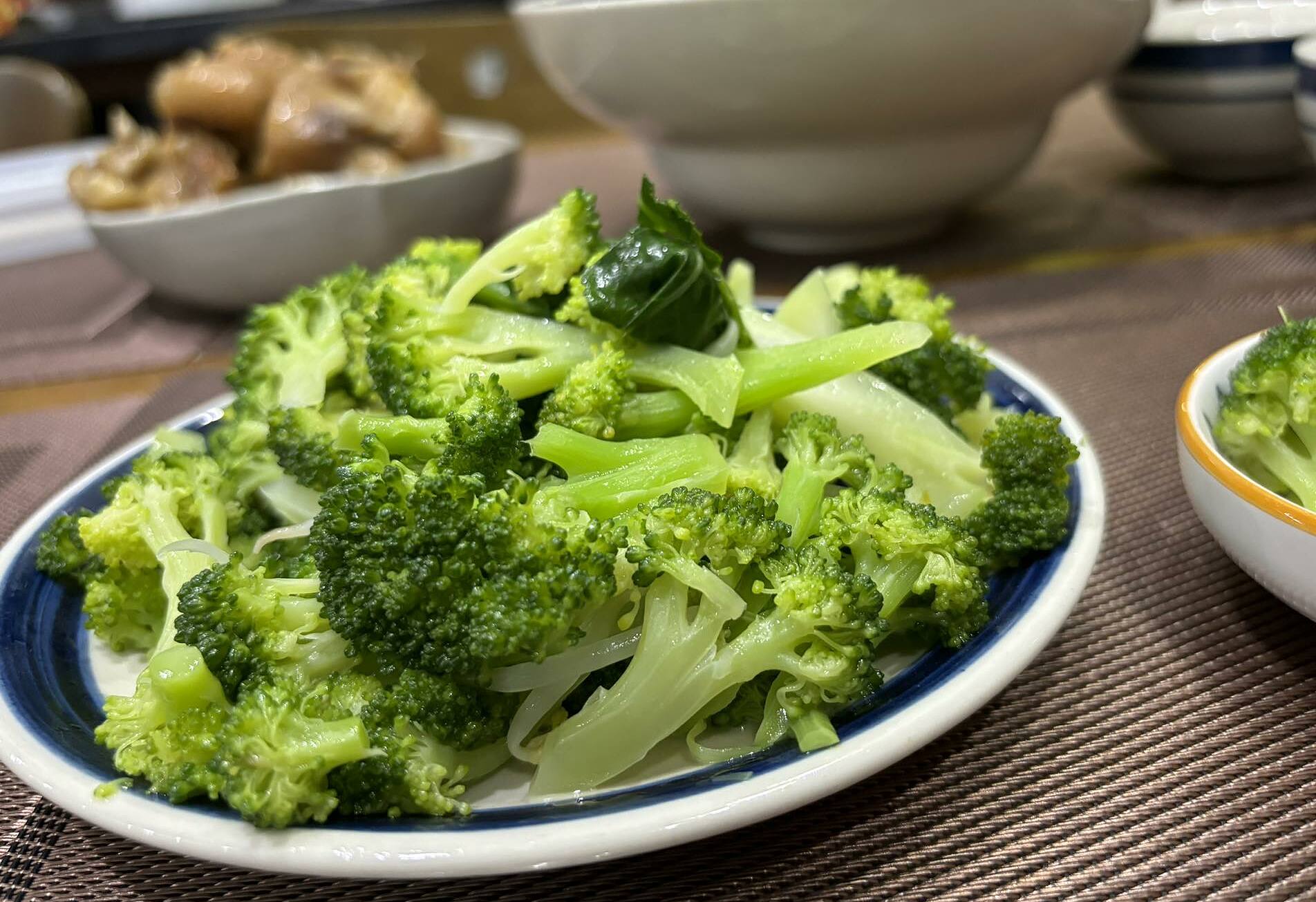 |
Broccoli is rich in fiber, which promotes bowel movements and aids digestion. It also contains numerous nutrients and antioxidants that contribute to liver protection, preventing metabolic disorders, fat accumulation, and guarding against hepatitis and non-alcoholic fatty liver disease. Photo: Anh Chi, AI, Bao Bao |
Broccoli is rich in fiber, which promotes bowel movements and aids digestion. It also contains numerous nutrients and antioxidants that contribute to liver protection, preventing metabolic disorders, fat accumulation, and guarding against hepatitis and non-alcoholic fatty liver disease. Photo: Anh Chi, AI, Bao Bao
 |
Lemon water is rich in vitamin C (a powerful antioxidant) along with flavonoid compounds like hesperidin and naringin. These substances protect liver cells, support detoxification, prevent free radical damage, and reduce inflammation, guarding against fatty liver disease and hepatitis. Drinking lemon water in the morning after breakfast or after lunch supports liver cleansing. Photo: Anh Chi, AI, Bao Bao |
Coffee can help protect the liver from damage caused by excessive alcohol consumption or an unhealthy diet. This beverage has a high caffeine content, which can inhibit inflammation and fibrosis in the liver, slowing the progression of viral hepatitis B and C.
The caffeine in coffee also contributes to reducing liver enzymes and decreasing fat accumulation in the liver. It's recommended to drink 1-3 cups of pure coffee daily and limit consumption in the evening to avoid sleep disruption.
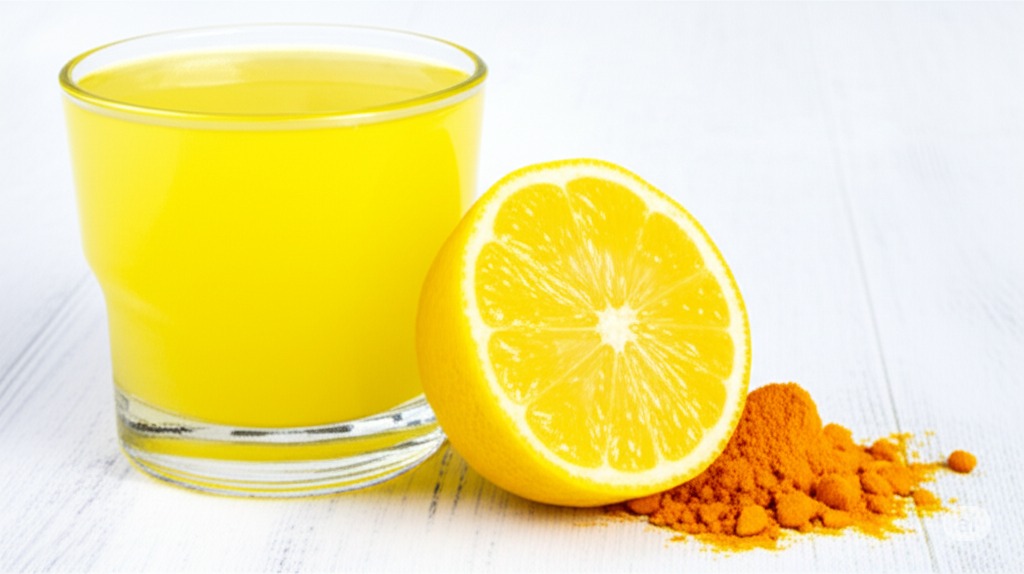 |
Almonds and other nuts like sunflower seeds and walnuts are rich in omega-3 fatty acids and vitamin E, which help the body combat metabolic-related fatty liver disease. Almonds are also heart-healthy and have minimal impact on blood sugar levels, a factor linked to liver health. Photo: Anh Chi, AI, Bao Bao |
Lemon water is rich in vitamin C (a powerful antioxidant) along with flavonoid compounds like hesperidin and naringin. These substances protect liver cells, support detoxification, prevent free radical damage, and reduce inflammation, guarding against fatty liver disease and hepatitis. Drinking lemon water in the morning after breakfast or after lunch supports liver cleansing. Photo: Anh Chi, AI, Bao Bao
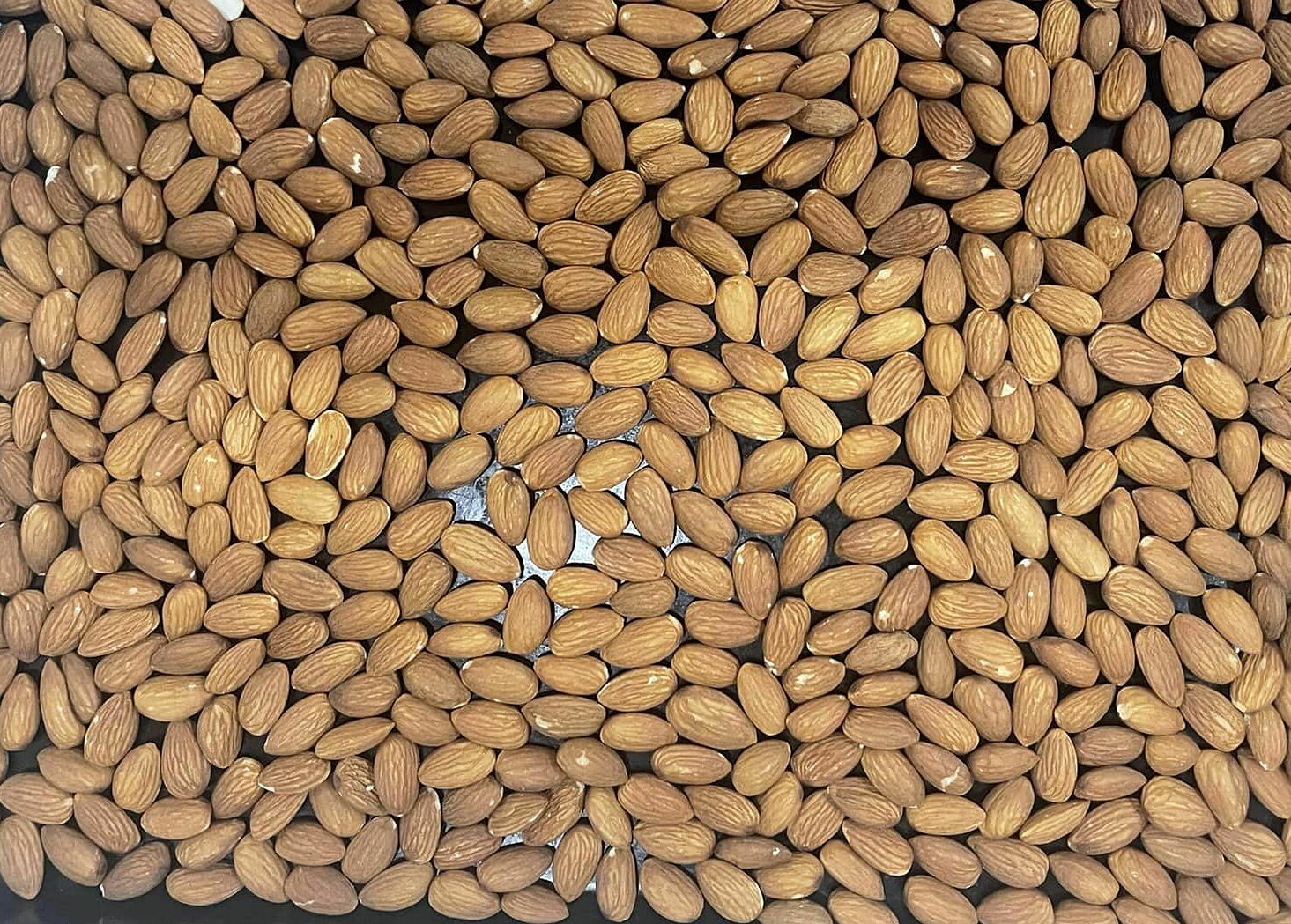 |
Donuts are high in calories due to their ingredients of flour and beans, deep-fried and then coated with sugar, sweeteners, or honey for added flavor. Consuming too much sugar can harm the liver, as this organ is responsible for converting sugar into fat. Excessive sugar intake leads to excessive fat production and accumulation in the liver. Over time, this increases the risk of non-alcoholic fatty liver disease and metabolic disorders. Photo: Anh Chi, AI, Bao Bao |
Almonds and other nuts like sunflower seeds and walnuts are rich in omega-3 fatty acids and vitamin E, which help the body combat metabolic-related fatty liver disease. Almonds are also heart-healthy and have minimal impact on blood sugar levels, a factor linked to liver health. Photo: Anh Chi, AI, Bao Bao
 |
Alcohol can quickly damage the liver, causing hepatitis and cirrhosis. Alcoholic beverages disrupt the fatty acid oxidation process, increasing fat accumulation in the liver, leading to the fatty degeneration of liver cells. They also activate inflammatory cells, destroying and damaging liver cells. Adults should limit alcohol consumption. If they must drink, men should consume no more than two drinks per day, and women no more than one. Photo: Anh Chi, AI, Bao Bao |
Donuts are high in calories due to their ingredients of flour and beans, deep-fried and then coated with sugar, sweeteners, or honey for added flavor. Consuming too much sugar can harm the liver, as this organ is responsible for converting sugar into fat. Excessive sugar intake leads to excessive fat production and accumulation in the liver. Over time, this increases the risk of non-alcoholic fatty liver disease and metabolic disorders. Photo: Anh Chi, AI, Bao Bao
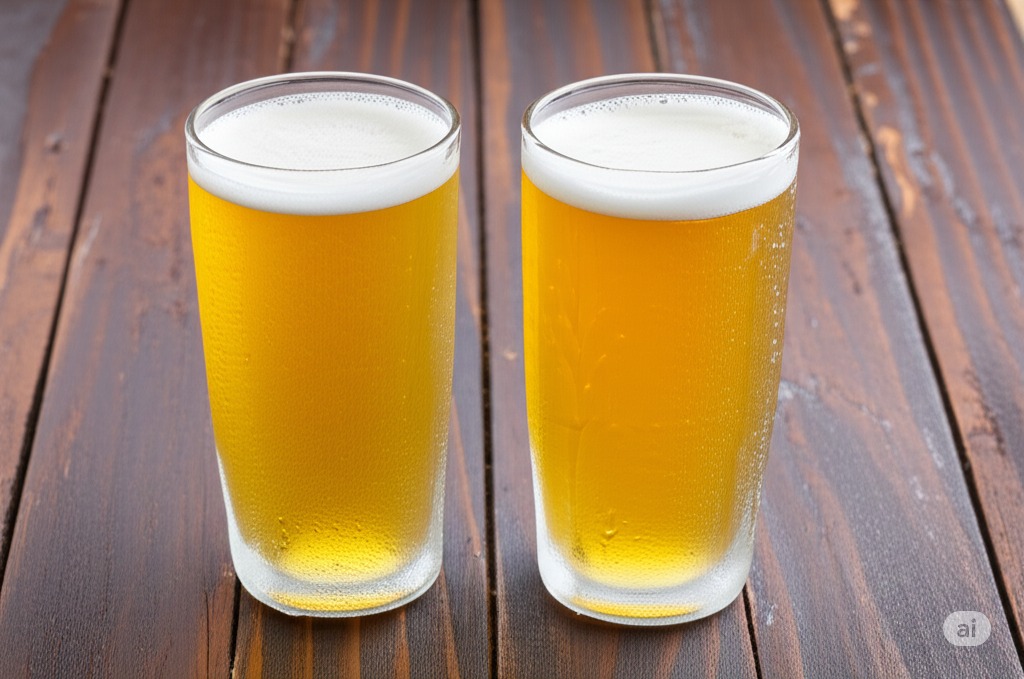 |
French fries are saturated with oil and therefore high in unhealthy fats, causing the liver to work harder and potentially leading to damage such as hepatitis and fatty liver accumulation. Consuming too many foods rich in saturated fat can exacerbate fatty liver disease, causing hepatitis, cirrhosis, or liver scarring. In addition to French fries, other greasy foods like fried sweet potatoes, fried chicken, and roasted meats should also be limited. Photo: Anh Chi, AI, Bao Bao |
Alcohol can quickly damage the liver, causing hepatitis and cirrhosis. Alcoholic beverages disrupt the fatty acid oxidation process, increasing fat accumulation in the liver, leading to the fatty degeneration of liver cells. They also activate inflammatory cells, destroying and damaging liver cells. Adults should limit alcohol consumption. If they must drink, men should consume no more than two drinks per day, and women no more than one. Photo: Anh Chi, AI, Bao Bao
 |
French fries are saturated with oil and therefore high in unhealthy fats, causing the liver to work harder and potentially leading to damage such as hepatitis and fatty liver accumulation. Consuming too many foods rich in saturated fat can exacerbate fatty liver disease, causing hepatitis, cirrhosis, or liver scarring. In addition to French fries, other greasy foods like fried sweet potatoes, fried chicken, and roasted meats should also be limited. Photo: Anh Chi, AI, Bao Bao
Anh Chi (WebMD)












